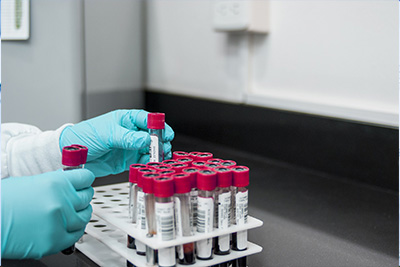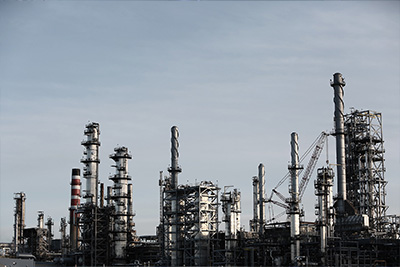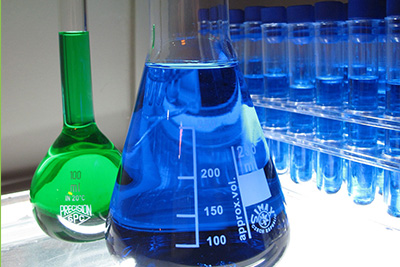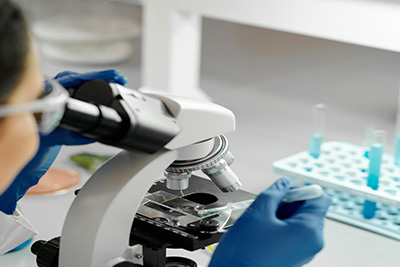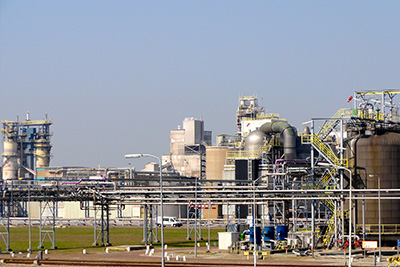-
![Regulatory Standar···]() 2024-11-19 Regulatory Standards in Butyltin Pro···
2024-11-19 Regulatory Standards in Butyltin Pro···The production of butyltins involves stringent regulatory standards to ensure environmental and safety compliance. These standards aim to minimize the release of butyltin compounds, which can be highly toxic to aquatic life and potentially harmful to human health. Companies must adhere to guidelines set by agencies such as the EPA and REACH, focusing on proper handling, storage, and disposal practices. Continuous monitoring and reporting of emissions are also crucial to maintain ecological balance and worker safety. Effective implementation of these regulations not only protects the environment but also ensures the well-being of those involved in the manufacturing process.
read more > -
![Methyltin Manufact···]() 2024-11-19 Methyltin Manufacturing Techniques: ···
2024-11-19 Methyltin Manufacturing Techniques: ···The article discusses various methyltin manufacturing techniques aimed at enhancing the performance of polyvinyl chloride (PVC). These techniques focus on optimizing the production process to achieve better thermal stability, improved plasticizing efficiency, and increased longevity of PVC products. The study highlights the significance of precise control over reaction conditions and the use of advanced catalysts to ensure high-quality methyltin compounds, which are crucial additives in PVC applications. Overall, the research underscores the importance of innovative manufacturing methods for producing superior methyltin compounds that can significantly enhance PVC's properties.
read more > -
![The Impact of Octy···]() 2024-11-19 The Impact of Octyltin Compounds on ···
2024-11-19 The Impact of Octyltin Compounds on ···Octyltin compounds, commonly used as heat stabilizers in PVC processing, significantly influence the material's heat stability. These compounds form coordination complexes with the unstable chlorides in PVC, thereby preventing degradation during thermal treatment. However, their efficacy varies based on factors such as the specific octyltin derivative and its concentration. This article delves into the production insights of these stabilizers, discussing synthesis methods, optimal usage ratios, and environmental considerations. Understanding these aspects is crucial for enhancing PVC's performance and sustainability in various applications.
read more > -
![Dimethyltin in PVC···]() 2024-11-19 Dimethyltin in PVC Production: Optim···
2024-11-19 Dimethyltin in PVC Production: Optim···The article discusses the use of dimethyltin as a catalyst in polyvinyl chloride (PVC) production, focusing on optimizing both yield and product quality. It highlights that dimethyltin effectively enhances the polymerization process, leading to higher yields and improved properties of the final PVC product. The study explores various concentrations and reaction conditions to determine the optimal parameters for maximizing efficiency and quality, ensuring consistent performance and durability of PVC materials.
read more > -
![Mercaptide Tin and···]() 2024-11-19 Mercaptide Tin and Its Role in PVC S···
2024-11-19 Mercaptide Tin and Its Role in PVC S···Mercaptide tin compounds play a crucial role in enhancing the thermal stability of polyvinyl chloride (PVC). These compounds, primarily used as heat stabilizers, prevent degradation during processing and prolonged use. Present production techniques involve complex chemical reactions to synthesize mercaptides from organic thiols and tin salts. The efficiency and environmental impact of these processes vary, with ongoing research focusing on developing more sustainable and effective methods to improve PVC stability while minimizing ecological footprint.
read more > -
![Sustainable Approa···]() 2024-11-19 Sustainable Approaches in Methyltin ···
2024-11-19 Sustainable Approaches in Methyltin ···This article explores sustainable manufacturing methods for methyltin and butyltin compounds. It highlights the importance of reducing environmental impact through improved synthesis techniques, waste minimization, and the use of eco-friendly catalysts. The study emphasizes the need for greener processes to produce these organotin compounds, discussing advancements in chemical engineering that enhance efficiency and reduce harmful by-products. Additionally, it reviews current regulations and industry practices aimed at minimizing the ecological footprint of their production.
read more > -
![The Production Lif···]() 2024-11-19 The Production Lifecycle of Octyltin···
2024-11-19 The Production Lifecycle of Octyltin···The production lifecycle of octyltin compounds for industrial applications involves several key stages. Initially, raw materials such as octanol and tin chloride are synthesized through chemical reactions to form intermediate compounds. These intermediates undergo further processing, including purification and stabilization, to produce the final octyltin products. Various industrial applications follow, where these compounds serve as effective biocides, stabilizers, and catalysts. Throughout their lifecycle, environmental and safety considerations are crucial, necessitating careful handling, disposal methods, and regulatory compliance to minimize ecological impact and ensure worker safety.
read more > -
![Dimethyltin Stabil···]() 2024-11-19 Dimethyltin Stabilizers: Innovations···
2024-11-19 Dimethyltin Stabilizers: Innovations···Dimethyltin stabilizers have seen significant advancements in their production processes, enhancing their effectiveness in various applications while ensuring environmental compliance. These stabilizers play a crucial role in polymer stabilization, improving product durability and longevity. Recent innovations focus on optimizing synthesis methods to reduce hazardous by-products and minimize ecological impact. This development not only meets stringent regulatory requirements but also promotes sustainable manufacturing practices. The improvements in production techniques underscore the industry's commitment to both efficiency and environmental responsibility.
read more > -
![Mercaptide Tin Tec···]() 2024-11-19 Mercaptide Tin Technology in Polymer···
2024-11-19 Mercaptide Tin Technology in Polymer···The article explores the advancements and market trends of mercaptide tin technology in polymer processing. It highlights how this technology enhances the efficiency and performance of polymers, offering improved thermal stability, better catalytic activity, and reduced environmental impact compared to traditional tin technologies. The growing demand for high-performance materials in various industries, coupled with stringent regulations on toxic substances, is driving the adoption of mercaptide tin technology. Market analysis indicates significant potential for growth, particularly in Asia-Pacific, due to increasing industrialization and technological advancements. Overall, the technology is poised to revolutionize the polymer processing industry by providing eco-friendly and high-efficiency solutions.
read more >


